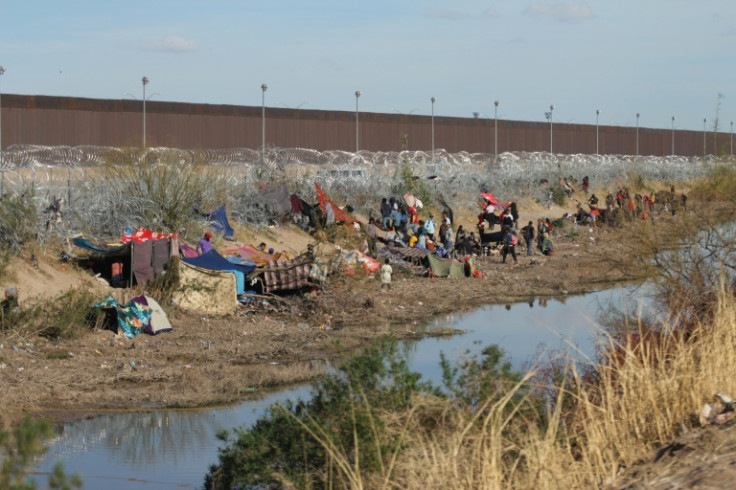
Texas' contentious immigration enforcement bill, often referred to as SB4, has returned to a federal appeals court. As one of the nation's most stringent pieces of legislation in recent memory faces renewed scrutiny, activists are voicing their opinions on the potential ramifications of the proposed measure in anticipation of the 2024 elections.
A three-judge panel listened to oral arguments Wednesday morning at the Fifth Circuit United States Court of Appeals in New Orleans. It is the same panel that put SB4 on hold for the last week while the case plays out.
The lawsuit, which was combined with a legal challenge brought by El Paso County and Las Americas Immigrant Advocacy Center, says immigration is the sole responsibility of the federal government. Texas, however, counters that the Biden administration has not taken care of the issue, leaving the state no choice but to enforce its own border.
Under SB4, state and local police have the right to question, arrest and charge undocumented immigrants suspected of crossing the border illegally. Furthermore, the law would require that state judges deport people back to Mexico upon conviction, regardless of their nationality.
Although the bill hasn't taken effect yet due to its various legal obstacles, SB 4 is mobilizing Texas immigrant communities in unprecedented ways, according to USA Today.
For instance, the Border Network for Human Rights, a nonprofit organization based in El Paso, Texas, has joined an effort uniting 50 Texas organizations called the We Will Resist Campaign Coalition.
On the other hand, Hispanic conservative-leaning activists believe laws like SB 4 are necessary to deal with the unprecedented influx of migrants through the southern border.
Selene Rodriguez runs the conservative-leaning Texas Public Policy Foundation's Secure and Sovereign Texas campaign that supported the controversial law. She does not think that resisting the proposed approach will cause a positive change.
"You are always going to have split opinions," Rodriguez said, "but I am seeing a growing increase in people wanting strict immigration laws, especially in Hispanic communities. My community is tired of the human smuggling attempts."
"Texas very much supports legal and safe immigration," she adds. "What we don't want is millions of people putting themselves into the hands of Mexican cartels coming here illegally."
Despite its controversy, this isn't the first time an anti-immigration law of this nature has emerged in the U.S.
In 1994, California Republicans pushed for Prop. 187, a law that would require police, health care workers and teachers to verify and report the immigration status of all people, including children, and report undocumented immigrants to federal authorities.
In Arizona, about a decade later, the "show me your papers" law, or SB 1070, emerged. The proposed law made it a state crime for "unauthorized" immigrants to fail to carry registration papers and other government identification.
In both instances, Latino grassroots organizations mobilized across their cities and demanded these laws to be struck down. Eventually, none of them would come to fruition and some politicians in each state were not able to remain in office in the aftermath, USA Today reports.
The California law, for one, "ruined the GOP brand in the eyes of immigrants, their children and whites who were turned off by nativist appeals — driving all of them into the arms of Democrats who were pro-immigration," Alex Nowrasteh, vice president for economic and social policy studies at the Libertarian CATO Institute, wrote in a 2016 analysis.
Could a similar effect take place in Texas at the moment? It is up for debate.
Texas Gov. Greg Abbott still enjoys broad support for his immigration initiatives. A University of Texas, Austin poll in February revealed more than half of respondents said they "strongly" or "somewhat" supported Abbott's measures, including deploying state and military resources to the border, placing razor wire in the Rio Grande, and rebuilding or repairing border barriers.
Nevertheless, the law still has to jump through certain legal obstacles before it comes into full effect. And even if it does, it remains to be seen how and where it's implemented.
© 2024 Latin Times. All rights reserved. Do not reproduce without permission.







